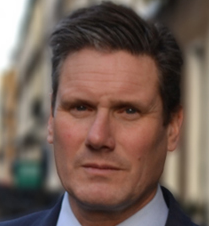John Glen – 2019 Speech at the Building Societies Association Annual Conference
Below is the text of the speech made by John Glen, the Economic Secretary to the Treasury, on 23 May 2019.
Thank you, Stephen [Stephen Mitcham, Chairman].
It’s a pleasure to be asked to speak at your Annual Conference, particularly in this 150th Anniversary year.
A century-and-a-half is quite an achievement for any organisation.
Throughout this time the Building Societies Association has been keeper of the flame, for the movement and its members.
Over the years you’ve weathered all sorts of economic storms and existential threats. In more recent times, you survived de-mutualisation in the 1990s and the Global Crash of 2008, and today you represent almost a quarter of the mortgage market.
And I think it’s worth taking a moment to consider why it is that the building society movement has endured.
In answering that question, it’s perhaps fitting if I start by quoting the man who was Prime Minister back at the time of your founding.
It was Benjamin Disraeli who said that “the secret of success is constancy of purpose.”
For all the changes we’ve seen in our society and our economy, the building society movement has remained true to its original values.
In 2019, as in 1869, building societies continue to put the interests of their members first.
They continue to be rooted in the communities they serve.
And they continue to ensure our financial service sector caters for everyone in our society.
This is borne out by the strength of the sector today, with more than 40 different organisations, serving 25 million members in 1,500 branches across the United Kingdom.
As I will explain in a moment, this diversity and competition in high street lending has never been more necessary than it is today.
But first I should also add a special word on credit unions.
It’s good to see so many represented here today, including BSA’s newest member, Scotwest.
I know how vital credit unions are to the people and communities you serve.
This was reflected in the Parliamentary debate I responded to on Tuesday this week, with many members from across the House speaking up for credit unions.
As some of you know, the government is developing a prize-linked savings scheme to encourage individual savers, and help raise awareness of credit unions more widely.
It’s a first step…because whether you can trace your pedigree back to 1869 or not, I want to see mutuals of all types prosper and grow.
I’d like to use my remarks to set out why I think it’s so vital that building societies and credit unions keep on innovating and adapting…
…so they can continue to apply their values and principles in a changing society.
Of course, given the changes we’ve seen over the past 150 years, who can predict with any certainty what the next 150 may bring?
Here in Westminster it’s difficult to see past next week…
And yet despite the short-term political uncertainty, I’m in no doubt of the forces that will shape the future of our financial sector.
I refer to the ‘three Ts’ – Trust, Technology and Talent.
Let’s take each of them in order, starting with Trust.
A decade on from the financial crash, I know how hard the sector has worked to rebuild public trust.
But the task of making our financial services work in a way that is sustainable and responsible is an unending one.
And we must never stop working to ensure our economy is sufficiently broad and inclusive to serve everyone in our society.
This challenge is particularly acute when you consider the demographic pressures we face as a country.
We have a generation of young people starting out in life, for whom the traditional expectations about job security, home ownership and pensions seem to be slipping further into the distance.
At the other end of the financial journey, we have more people living longer. One in 3 children born today will live to see their 100th Birthday, with all that entails in terms of financial security and social care.
Balancing the two is not easy – but balance them we must.
Because if we are to maintain people’s faith in our financial system, then it must evolve to serve their changing needs and expectations.
I know the building society movement is in the vanguard of these efforts.
Take housing.
In November, I was pleased to speak at the launch of BSA’s report on Intergenerational Mortgages.
I know that Saffron has launched a guarantor mortgage, while Marsden is the latest building society to offer a ‘joint borrower, sole proprietor’ mortgage.
These two schemes take into account the financial circumstances of family members in order to give first time buyers a leg up onto the property ladder.
I recently met the Ecology Building Society, which offers Green Mortgages for self-build properties and discounted borrowing for home improvements.
That’s another great example of how the mortgage market can respond to the needs of society, and of the generations to come.
As for retirement lending, it’s hugely encouraging to see regional building societies like Leeds, Nottingham and Loughborough offering retirement interest-only mortgages.
And we’re starting to see this on a national level, with Nationwide offering a retirement interest-only mortgage alongside traditional equity release and capital repayment products – all backed by a joined-up advice service.
These examples are proof that regulation and innovation are not mutually exclusive.
It is possible to be a responsible lender while remaining accessible to people at every stage of their financial lives.
And fresh thinking can transform even the most traditional areas of business.
The subject of fresh thinking naturally leads to the second ‘T’ – Technology.
You don’t need me to remind you of the extent to which technology is changing the market, particularly for high street lenders.
But the question is – Do we sit back and let technology do its work? Or do we seize the opportunity to meld and align this revolution in a way that works for society?
It probably won’t surprise you to hear me say I choose the second option.
Yes, technology can provide more sophisticated and more convenient services, to the benefit of customers and businesses alike.
But it’s true financial potential is to be found in being a catalyst for a smarter, more resilient and inclusive system.
And that requires us to come together, roll-up our sleeves and get to work.
First, to ensure that the benefits of technology can be harnessed across the sector, from the big national institutions to the smallest community cooperative.
And second, to ensure that the benefits are felt throughout society: not just the wealthy or comfortable, but those who struggle with complex financial circumstances.
I’m really pleased that you have Conference sessions planned for tomorrow under the theme of ‘Digital Mutual’.
Meanwhile, our Financial Inclusion Forum brings government, business and civil society together to help find new solutions.
Nationwide is one of the institutions that have picked up the baton.
It’s ‘Open Banking for Good’ Challenge offers £3 million to FinTech companies that can come up with new apps and services to help financially squeezed households in this country.
Fifty applications have been whittled down to 7 start-ups, which are now taking their ideas forward.
At a time when many see Open Banking solely through a commercial lens, this is a much-needed demonstration that it can offer a social purpose too.
The third and final ‘T’ is Talent.
The single most critical element in the future of financial services – and our wider economy – is the availability of skills in the sector.
We need people with the courage to think differently; the agility to move with the times; and the ambition to grasp the opportunities before us.
To find these people, we must look to society in all its breadth and diversity.
All the research shows that a more inclusive workforce is better for employees, better for businesses and better for customers.
But across the financial sector – including building societies – there are sadly too few women represented in senior leadership roles.
As some of you know, HM Treasury published the Women in Finance Charter three years ago.
It asked financial service companies to commit to greater representation of women in senior leadership roles in the near term, with the long-term goal of an equal gender balance.
BSA has shown real leadership by signing the charter.
It sends a signal to the rest of the sector that this is the right thing to do.
Twelve individual building societies have also signed up and I would encourage the 35 BSA members who haven’t yet done so to do likewise.
The next step for everyone is to turn that public commitment into tough, tangible, action.
I congratulate those who have met their first round of targets for increasing female representation in senior management this year –
…Capital Credit Union…and Leeds, Market Harborough, Nottingham, Progressive and West Bromwich Building Societies.
It’s good to see progress.
But we still have a long way to go.
And I do intend to hold your feet to the fire on this matter.
As a sector, you pride yourself on being locally-focused and community-minded.
In so many areas, your ethos is in line with public frustration and sentiment.
So, frankly, I find it difficult to understand why this matter should be any different.
Gender balance is a business imperative as well as a moral one.
It’s not about displacing current leaders – it’s about creating a talent pipeline by thinking about who you recruit and how you nurture them over the course of a career.
Because in a world that is increasingly global, increasingly competitive and increasingly digital, we simply cannot afford for people with the talent and skills we need to pass the sector by.
Nor can we afford for experienced and capable individuals to be prevented from rising to the top.
Let me begin to draw this together.
I’ve highlighted some of the ways the Building Societies Association is leading the sector to innovate and adapt.
Of course, there are plenty of other examples I could have chosen.
Like Yorkshire Building Society’s workplace saving scheme.
Or Nationwide’s not-for-profit house building programme.
Or Newcastle’s leadership in signing up to the alternative dormant assets scheme for smaller building societies and banks.
All of which represent the innovation that is found across the sector.
So my closing message to you today is to keep on doing all the things you do.
Keep on serving local communities.
Keep on bringing forward new ideas for greater collaboration – building trust, harnessing technology and sharpening talent.
And, most importantly, keep on putting people first.
Because like Disraeli said, constancy of purpose is the key to success.
So, to end, I’d like to congratulate the Building Societies Association for all that you have achieved, and all that you will achieve.
Because I have confidence that you have as much to contribute to our country in your next 150 years as you have in your first.


